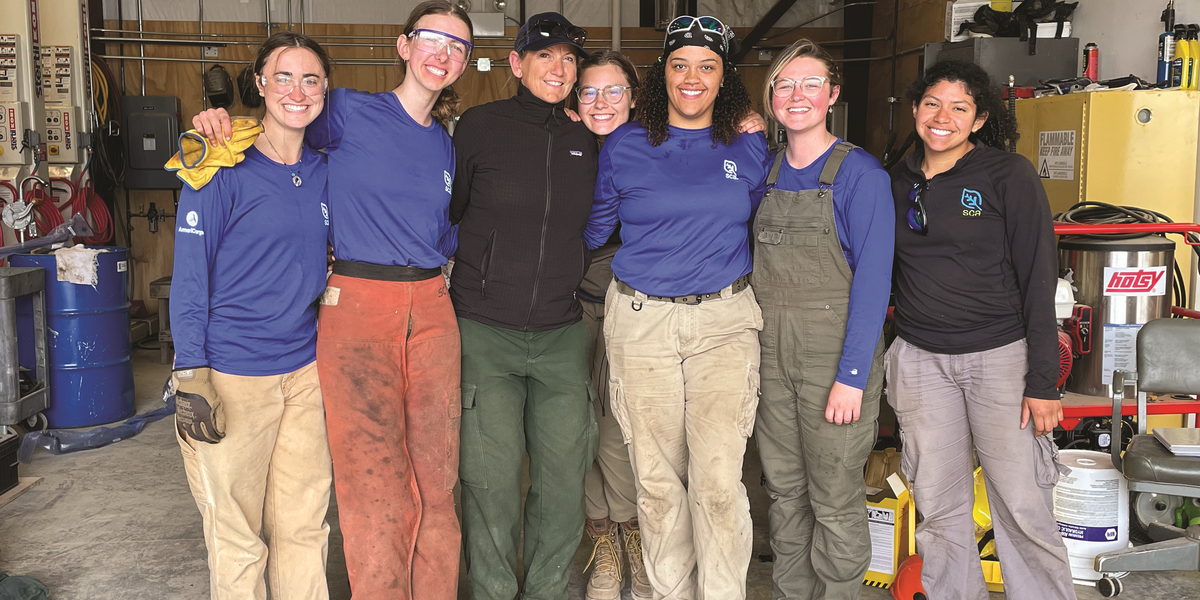
Amital Shaver, second from left, with her fire team.
This story originally appeared in Minnesota Alumni magazine.
The Colorado River is shrinking. Lake Mead, its reservoir—one of the country’s two largest—is so low that soon it may not have enough water for the 40 million people who rely on it.
The Colorado isn’t the only waterway that’s turning to dust, attributed to drought exacerbated by climate change. According to the government’s U.S. Geological Survey, “Climate change has further altered the natural pattern of droughts, making them more frequent, longer, and more severe. Since 2000, the western United States is experiencing some of the driest conditions on record.” And as this drying acreage expands in parts of the country, the risk for wildfires increases.
It’s a worldwide phenomenon. In Europe this summer, wildfires were so severe they burned the equivalent of one-fifth of Belgium. In California this fall, the Mosquito fire surpassed the McKinney fire as the state’s largest, encompassing 63,000 acres; the McKinney hit 60,000. The largest recorded California wildfire, known as the August Complex, burned over a million acres in 2020; the second, the Dixie in July 2021, burned nearly as much. In fact, the eight largest fires recorded in California have occurred since 2017.
Over half of the 3 million acres that burned in the U.S. this summer were in Alaska. More of the Bristol Bay region in southwest Alaska burned during the summer of 2022 than burned collectively in the same area between 1950 and 2021.
Bristol Bay is where University of Minnesota sophomore Amital Shaver spent her summer learning to fight wildland fires. Shaver was part of a newly launched, all-women conservation corps crew hosted by the National Park Service (NPS) in conjunction with the Student Conservation Association (SCA). After a successful pilot program in 2021 in Yosemite and Grand Teton National Parks, this past summer NPS sent an all-woman crew, including Shaver, to Alaska.
Read the entire article on the Minnesota Alumni magazine website.